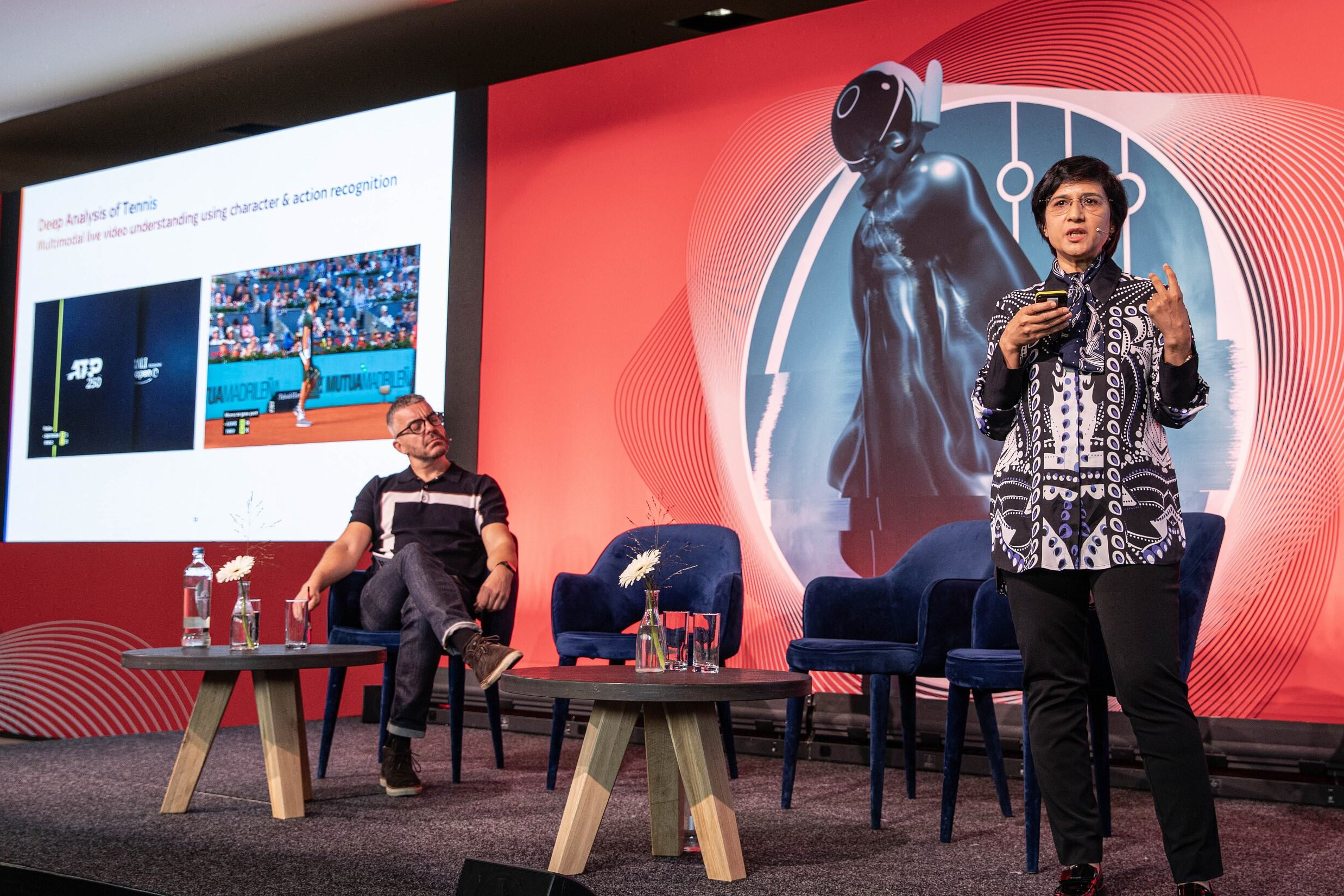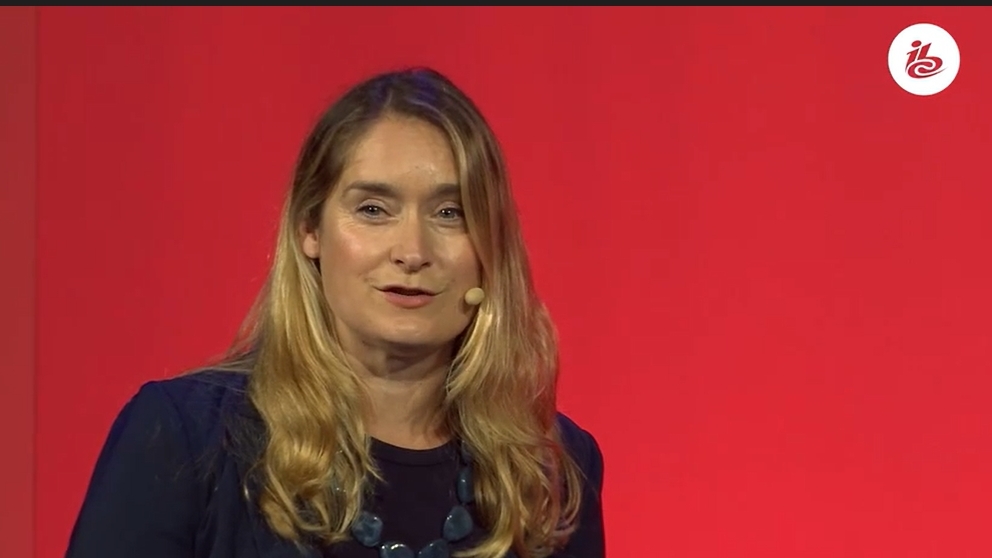AI has made an appearance almost everywhere at this year’s IBC and took centre stage in a session moderated by Tom Bowers from Hypothesis Media with panellists Huma Lodhi, Principal Machine Learning Engineer at Sky; Chris Jackson, Global Head of Digital Data and Analytics at the Olympic Channel; and Hardeep Dhaliwal, Head of Data Products at ITV.
While many broadcasters have just begun looking at adopting AI-powered tools to enhance production and audience engagement, Sky, ITV, and the Olympic Channel have already rolled out AI-enhanced products that they use to streamline content creation, offer personalised experiences, and improve data management. A common thread across their use of AI is the balance between technological innovation and maintaining human oversight, especially in editorial processes.
Sky: personalised sports highlights
Lodhi presented Sky’s AI-driven product “Recap” which automates the creation of personalised sports highlights, allowing users to catch up on events they may have missed or relive key moments. The system uses machine learning, computer vision, and advanced computational methods to analyse live sports footage, generating scene-level metadata. This enables the production of real-time highlights for various sports, from football to tennis. The product’s scalability also allows Sky to cover multiple sports simultaneously, ensuring that viewers can enjoy personalized content regardless of the event they follow...
You are not signed in.
Only registered users can view this article.

IBC Accelerator programme kicks off in February
The IBC Accelerator Kickstart Day takes place at BBC Broadcasting House in London on 12 February 2025 and you can register to attend here.

IBC2024 sees growth across the board as AI takes centre stage
IBC2024 has announced that 45,085 visitors from 170 countries converged on the RAI Amsterdam on 13-16 September, bringing together the global media, entertainment and technology community to connect, showcase and discover innovations, tackle pressing industry challenges, and explore new opportunities.

Mstyslav Chernov warns of the impact of narrative manipulation in modern warfare
Journalist, filmmaker and war correspondent Mstyslav Chernov shared insights into his experiences covering conflicts, particularly the war in Ukraine, during an interview closing out this year’s IBC conference sessions.

Diverse hiring policies and established mentoring schemes essential for engaging future generations
IBC Talent Programme Part 1: At the wrap-up session on the final day of the conference, the IBC Talent Program highlighted the vital role diversity plays in shaping the future of the broadcasting industry.

IBC2024 celebrates pioneering media initiatives as it announces winners of IBC Innovation Awards
Innovative sports media and internationally acclaimed video journalism were celebrated today as the winners of the prestigious IBC Innovation Awards were announced at the RAI Amsterdam. The awards honoured the ground-breaking work of organisations transforming the media, entertainment and technology landscape, and recognise collaborative efforts to develop solutions that address real-world industry challenges.





